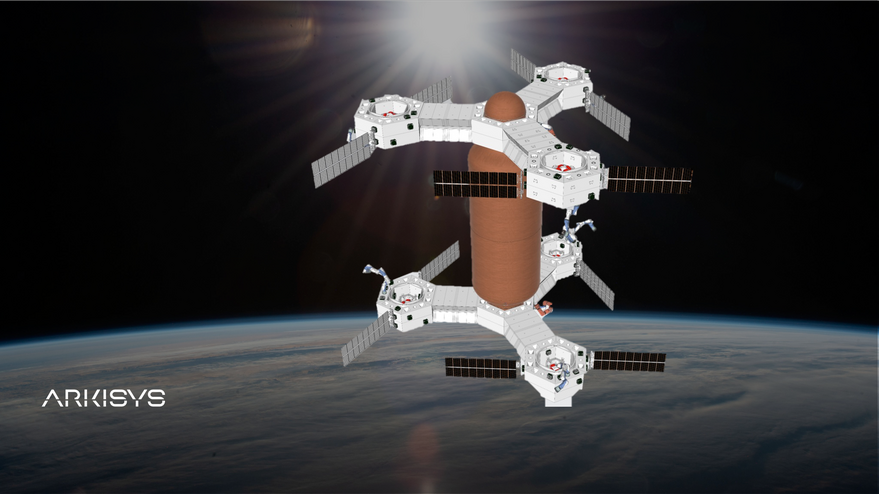PARIS — Arkisys, a Southern California startup developing robotic infrastructure for on-orbit commerce, announced plans Sept. 21 for a spaceflight demonstration of a key technology.
In 2023, Arkisys plans to launch Applique, a universal interface adapter designed to connect any spacecraft payload, using a variety of common interface standards and protocols. Funding for the mission comes from the Pentagon’s Defense Innovation Unit, which awarded Arkisys $17.5 million in other transaction authority in 2020 for a series of projects.
“It’s a system-on-a-chip design, which allows us to connect any external payload to the inner workings of our port,” Dan Lopez, Arkisys chief strategy officer, told SpaceNews. “You can connect a robotic arm, multispectral camera, synthetic aperture radar instrument, power, solar panels to anything: propulsion, launchers for smallsats or cubesats, metal recycling.”
Arkisys designed Applique after discussions with companies focused on various element of on-orbit servicing, including refueling, robotic arm manipulation, and rendezvous and proximity operations.
In addition to securely connecting payloads on Arkisys Port Module platforms, Applique is an integral element of the company’s Digital Twin, which Arkisys also is developing with DIU backing.
Arkisys was founded in 2014 by former UrtheCast vice president Dan Lopez and David Barnhart, director of the University of Southern California Space Engineering Research Center. The company is developing standard Port platforms to serve as nexus points for commerce in low-Earth orbit.
To ensure customer payloads can connect with the Port, Arkisys created a Digital Twin. Before customers send payloads to orbit, they are sent an Applique device, which they use to remotely connect with the cloud-based Digital Twin through a secure connection.
The virtual link ensures that Arkisys is prepared to integrate the customer payload with the Port once it reaches orbit, Lopez said. “That’s the way to speed things up,” he added.
In developing the interface connector, Arkisys worked with Germany’s iBoss Space and Novawurks of Los Alamitos, California, companies that have developed hardware and software interfaces for space applications.
“Everything we are working on is meant to scale, yet be simple and easy for customers to integrate into, encouraging and accelerating innovation at multiple levels,” Rahul Rughani, Arkisys chief of systems engineering, said in a statement.
